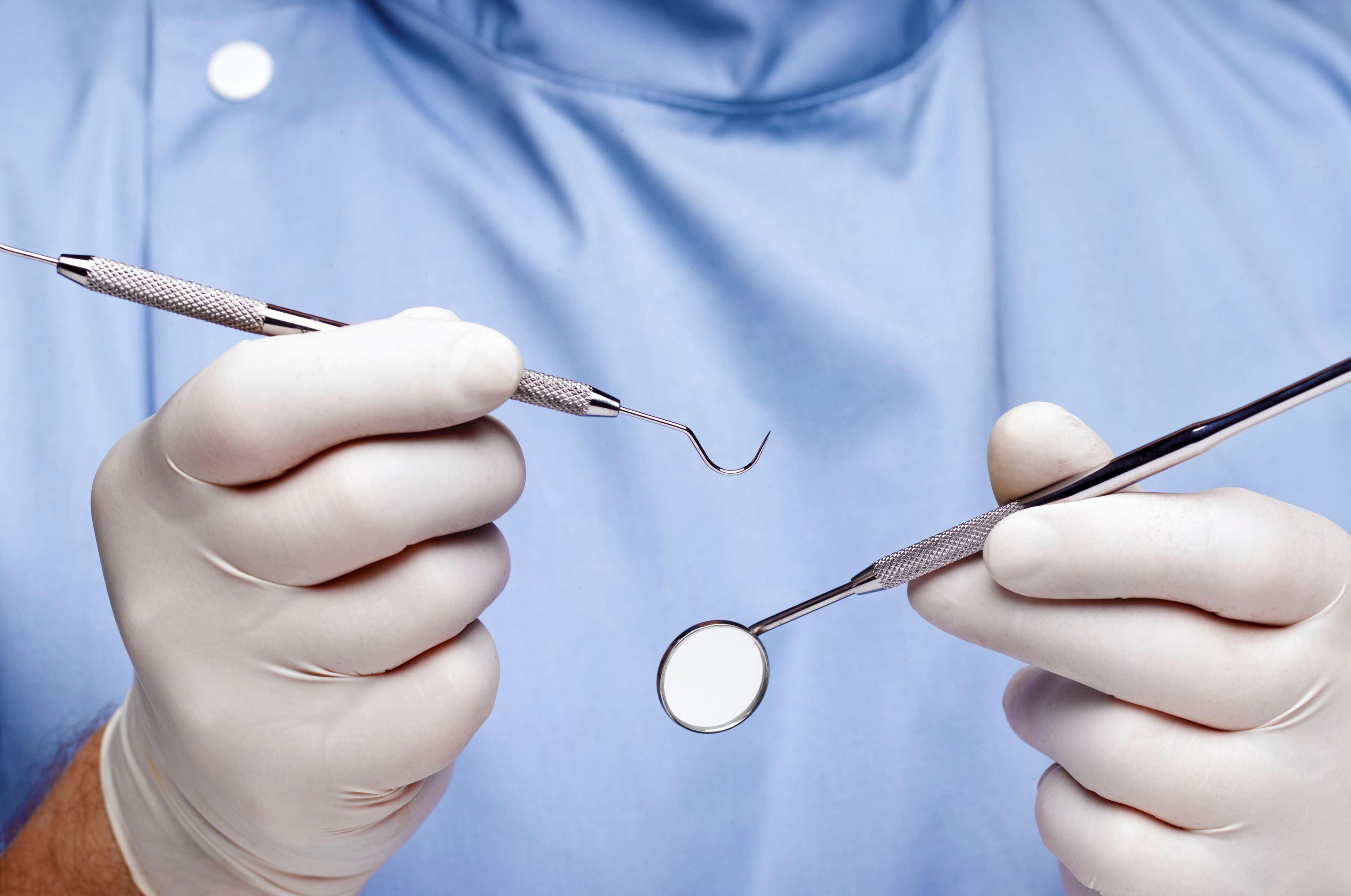4 (Imperfect) Ways Retirees Can Pay for Dental Care
Since Medicare doesn't provide dental benefits, seniors must consider other options to cover this need.

Profit and prosper with the best of Kiplinger's advice on investing, taxes, retirement, personal finance and much more. Delivered daily. Enter your email in the box and click Sign Me Up.
You are now subscribed
Your newsletter sign-up was successful
Want to add more newsletters?

Delivered daily
Kiplinger Today
Profit and prosper with the best of Kiplinger's advice on investing, taxes, retirement, personal finance and much more delivered daily. Smart money moves start here.

Sent five days a week
Kiplinger A Step Ahead
Get practical help to make better financial decisions in your everyday life, from spending to savings on top deals.

Delivered daily
Kiplinger Closing Bell
Get today's biggest financial and investing headlines delivered to your inbox every day the U.S. stock market is open.

Sent twice a week
Kiplinger Adviser Intel
Financial pros across the country share best practices and fresh tactics to preserve and grow your wealth.

Delivered weekly
Kiplinger Tax Tips
Trim your federal and state tax bills with practical tax-planning and tax-cutting strategies.

Sent twice a week
Kiplinger Retirement Tips
Your twice-a-week guide to planning and enjoying a financially secure and richly rewarding retirement

Sent bimonthly.
Kiplinger Adviser Angle
Insights for advisers, wealth managers and other financial professionals.

Sent twice a week
Kiplinger Investing Weekly
Your twice-a-week roundup of promising stocks, funds, companies and industries you should consider, ones you should avoid, and why.

Sent weekly for six weeks
Kiplinger Invest for Retirement
Your step-by-step six-part series on how to invest for retirement, from devising a successful strategy to exactly which investments to choose.
Getting dental insurance in retirement is complicated even though seniors are prone to dental health problems. About 20% of adults 65 and older have untreated tooth decay, 68% have gum disease, and almost 1 in 5 have lost all their teeth, according to the Centers for Disease Control and Prevention. Because original Medicare doesn't cover dental care, seniors who want dental insurance must get it through a Medicare Advantage plan or buy individual dental coverage. Even then, the plans may have restrictions that leave seniors underinsured.

Individual Plans
Dental work is expensive. Crowns and root canals can cost more than $1,000, says Stephen Shuman, professor at the University of Minnesota School of Dentistry and chair of the oral health workgroup of the Gerontological Society of America. A single tooth implant can cost $1,000 to $4,500.
In general, monthly premiums for individual plans range from about $20 to $80. A typical plan includes two or three cleanings and checkups each year. "There is a misconception you can't get dental coverage, and it's hugely expensive," says Jeff Smedsrud, president of insurance at HealthCare Insurance Services. The plan, however, will likely have a waiting period -- anywhere from a few months to two years -- before coverage for more extensive procedures kicks in, experts say. That's to prevent people from only signing up for insurance when they need expensive work done. Coverage for routine preventive care is usually available immediately, Smedsrud says.
Individual plans may restrict patients to dentists in a network with no out-of-pocket maximum. Plans typically pay for a certain percentage of the costs for different services up to a maximum amount each year, usually between $1,000 and $2,000. You are responsible for any amount over that. "The biggest issue is people don't read the fine print and think they have dental insurance [that] will cover lots of stuff," says Shuman. "Then you find out it really is not going to."

Dental Discount Plans
Although a dental discount plan (which insurers also sell) is typically cheaper, it isn't insurance, says Smedsrud. Instead, it's a membership program for discounts and savings on dental services with no waiting period. You pay for the services you receive at the discounted rate for the specific program you signed up for. If you need extensive dental care, a discount plan is an expensive way to go.

Medicare Advantage
About 25% of Medicare enrollees had dental coverage through an Advantage plan in 2019, the Kaiser Family Foundation says. But the coverage can be skimpy, says Mary Johnson, Social Security and Medicare policy analyst at the Senior Citizens League. "Don't jump into an Advantage plan because you see these extra benefits, such as dental care."
Like individual plans, Medicare Advantage often imposes similar waiting periods (six months up to two years) before the insurer will pay for expensive work, such as crowns or dentures, Shuman says. Preventive care, like checkups, X-rays and cleanings, are covered immediately. The insurer may cover a certain percentage of different services up to a limit, often no more than $2,000 a year, Johnson says.

Self-Insure
You could forego dental insurance and pay for care out of pocket. Contributing to a health savings account before you sign up for Medicare at age 65 can help pay for these expenses, says James Miller, president of Woodward Financial Advisors. These tax-advantaged savings accounts are funded with pretax dollars, and withdrawals for qualified medical expenses are tax-free. But you can't contribute to an HSA once you're on Medicare, which has a six-month look-back period to your 65th birthday. Self-insuring works if you can afford to pay for care, but "if you are prone to frequent dental visits or more complex dental needs, this may not be the best option," Miller says. As with all insurance, "you get what you pay for," Shuman says. "If you want a comprehensive dental plan, then you will pay for that through premiums."
Profit and prosper with the best of Kiplinger's advice on investing, taxes, retirement, personal finance and much more. Delivered daily. Enter your email in the box and click Sign Me Up.
Jackie Stewart is the senior retirement editor for Kiplinger.com and the senior editor for Kiplinger's Retirement Report.
-
 Quiz: Do You Know How to Avoid the "Medigap Trap?"
Quiz: Do You Know How to Avoid the "Medigap Trap?"Quiz Test your basic knowledge of the "Medigap Trap" in our quick quiz.
-
 5 Top Tax-Efficient Mutual Funds for Smarter Investing
5 Top Tax-Efficient Mutual Funds for Smarter InvestingMutual funds are many things, but "tax-friendly" usually isn't one of them. These are the exceptions.
-
 AI Sparks Existential Crisis for Software Stocks
AI Sparks Existential Crisis for Software StocksThe Kiplinger Letter Fears that SaaS subscription software could be rendered obsolete by artificial intelligence make investors jittery.
-
 9 Types of Insurance You Probably Don't Need
9 Types of Insurance You Probably Don't NeedFinancial Planning If you're paying for these types of insurance, you might be wasting your money. Here's what you need to know.
-
 Amazon Resale: Where Amazon Prime Returns Become Your Online Bargains
Amazon Resale: Where Amazon Prime Returns Become Your Online BargainsFeature Amazon Resale products may have some imperfections, but that often leads to wildly discounted prices.
-
 What Does Medicare Not Cover? Eight Things You Should Know
What Does Medicare Not Cover? Eight Things You Should KnowMedicare Part A and Part B leave gaps in your healthcare coverage. But Medicare Advantage has problems, too.
-
 457 Plan Contribution Limits for 2026
457 Plan Contribution Limits for 2026Retirement plans There are higher 457 plan contribution limits in 2026. That's good news for state and local government employees.
-
 Medicare or Medicare Advantage: Which Is Right for You?
Medicare or Medicare Advantage: Which Is Right for You?From overall costs to availability of care, here's what to know about the differences between traditional Medicare and Medicare Advantage plans.
-
 Medicare Basics: 12 Things You Need to Know
Medicare Basics: 12 Things You Need to KnowMedicare There's Medicare Part A, Part B, Part D, Medigap plans, Medicare Advantage plans and so on. We sort out the confusion about signing up for Medicare — and much more.
-
 The Seven Worst Assets to Leave Your Kids or Grandkids
The Seven Worst Assets to Leave Your Kids or Grandkidsinheritance Leaving these assets to your loved ones may be more trouble than it’s worth. Here's how to avoid adding to their grief after you're gone.
-
 SEP IRA Contribution Limits for 2026
SEP IRA Contribution Limits for 2026SEP IRA A good option for small business owners, SEP IRAs allow individual annual contributions of as much as $70,000 in 2025, and up to $72,000 in 2026.
